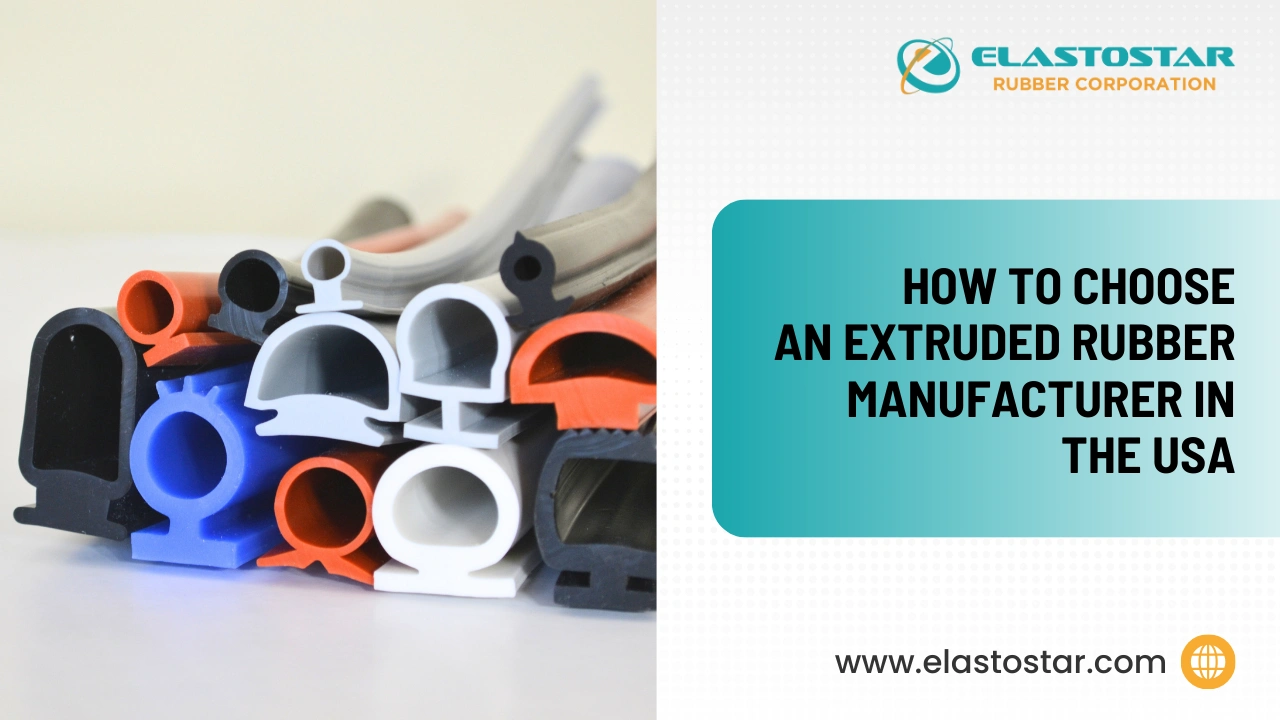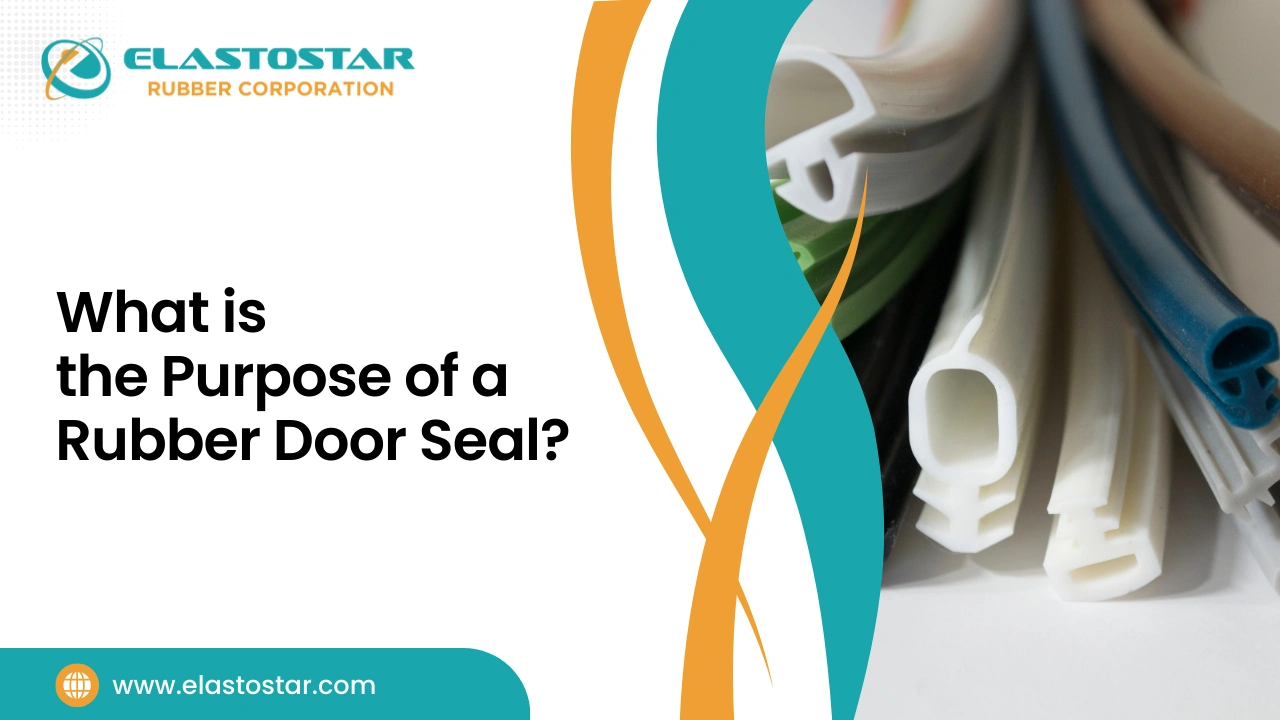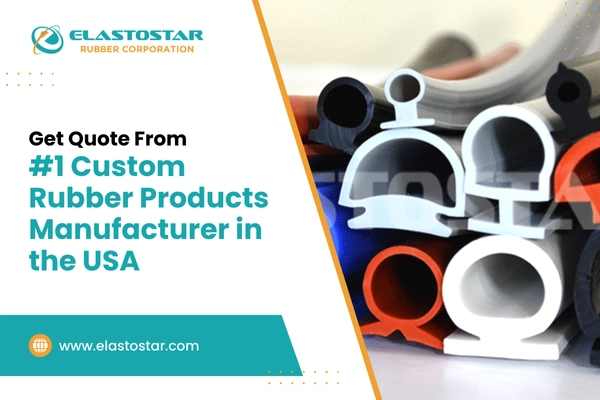Medical-grade silicone is widely used in healthcare because of its biocompatibility, flexibility, and durability. It is a non-toxic, hypoallergenic material that ensures patient safety, making it ideal for medical implants, tubing, seals, and prosthetics. Its ability to resist extreme conditions, including high temperature silicone environments, makes it highly reliable in medical applications.
Silicone gaskets and extruded rubber components provide strong sealing solutions in medical devices, preventing contamination and ensuring hygiene. As the demand for safe and high-quality medical materials grows, understanding their meaning and applications is essential for the medical industry.

Table of Contents
What is Silicone?
Silicone Rubber is a synthetic polymer made from silicon, oxygen, carbon, and hydrogen. It is widely used due to its non-toxic and biocompatible properties. It plays a crucial role in various medical applications, ensuring safety and hygiene in healthcare.
Read More- What is FDA Silicone Made Of?
Difference Between Silicon and Silicone

Many people confuse silicon and silicone, but they are entirely different:
- Silicon is a natural element found in sand and quartz, mainly used in electronics and semiconductors.
- Silicone is a processed polymer that includes oxygen and other elements, making it soft, flexible, and heat-resistant.
Only biocompatible silicone is used in medical applications because it is safe for human contact and does not react with body tissues.
Read More- Silicon versus silicone: How do they differ?
How is Medical-Grade Silicone Manufactured?
The production of medical-grade silicone follows strict quality standards to ensure safety and reliability.
- Raw Material Processing: Silicon is extracted and processed into silicone rubber.
- Compounding & Mixing: The material is transformed into different forms, including custom rubber extrusions for medical use.
- Molding & Extrusion: Using techniques such as rubber extrusions and extruded seals, silicone is shaped into components.
- Curing & Sterilization: Treated to meet FDA and ISO safety requirements for medical silicone tubing.
- Testing & Certification: Ensures compliance before use in medical applications.
Classifications of Medical-Grade Silicone
Medical-grade silicone is categorized based on its use in medical applications.
- Short-Term Implants – Used in catheters, and temporary surgical tools.
- Long-Term Implants – Found in silicone rubber rings for pacemakers, artificial joints, and other extended-use devices.
- External Medical Devices – Used in custom rubber extrusions, prosthetics, and extruded seals.
Each type is developed using biocompatible silicone to ensure safety and durability in healthcare applications.
What are the Properties of Medical-Grade Silicone?
1. Biocompatibility & Safety
Medical-grade silicone is designed to be safe for human contact. It does not cause allergies, irritation, or toxic reactions, making it suitable for medical devices used inside or outside the body. Its biocompatibility ensures that it does not break down or release harmful substances, making it a trusted material in implants, tubing, and medical seals.
2. Durability & Flexibility
Medical devices must be strong enough to last over time while remaining flexible for different applications. Medical-grade silicone is highly durable and does not crack or wear easily. Its flexibility allows it to be molded into various shapes, such as seals, gaskets, and tubing, ensuring a perfect fit in medical equipment.
3. Chemical & Temperature Resistance
Medical-grade silicone can handle high temperatures and exposure to different chemicals without degrading. It remains stable even after repeated sterilization and cleaning, ensuring medical devices stay effective and safe. This makes it ideal for high-temperature environments and applications that require frequent disinfection.
4. Sterilization Compatibility
Sterilization is essential in medical applications to prevent contamination. Medical silicone tubing, gaskets, and seals can handle different sterilization methods, including heat, radiation, and chemical cleaning, without losing their properties. This ensures that medical devices remain safe for repeated use.
What are the Applications of Medical-Grade Silicone?

Medical-grade silicone is widely used in healthcare due to its biocompatibility, flexibility, and durability. It plays a crucial role in medical devices, ensuring safety, hygiene, and long-lasting performance.
1. Medical Implants
Medical-grade silicone is used in pacemakers, prosthetics, and implants, providing a soft yet durable structure that reduces the risk of irritation or rejection. Silicone rubber gaskets create a secure seal in implantable medical devices, ensuring safety and preventing contamination.
2. Prosthetics & Orthotics
Silicone enhances prosthetic limbs and orthopedic supports, making them more comfortable and long-lasting. Extruded rubber seals help in creating smooth, cushioned surfaces, improving user experience and reducing discomfort.
3. Catheters & Tubing
Extruded rubber tubing is widely used in catheters, IV lines, and medical fluid transfer systems. It is flexible, bacteria-resistant, and non-toxic, ensuring smooth and sterile fluid flow. Its durability makes it suitable for short-term and long-term use in medical treatments.
4. Wound Care Products
Medical-grade silicone is used in bandages and wound dressings, providing a protective and non-stick barrier. Silicone gaskets ensure a sterile seal, helping to prevent infections and promote faster healing in burn treatments, post-surgical wounds, and chronic wound care.
5. Wearable Medical Devices
Silicone is essential in wearable healthcare technology, such as fitness trackers, ECG monitors, and patient monitoring systems. Silicone extrusion profiles provide a soft, skin-friendly, and moisture-resistant material, ensuring comfort during prolonged use.
What are the Advantages Over Other Materials?
Medical-grade silicone is widely chosen for medical applications due to its biocompatibility, flexibility, and durability.
Compared to other materials, it offers several key advantages that make it ideal for implants, prosthetics, tubing, and wearable medical devices.
1. Comparison with Plastics & Metals
In medical applications, silicone outperforms plastics and metals due to its unique properties.
- More Flexible than Plastics
Unlike rigid plastics, silicone provides elasticity and softness, making it more comfortable for prosthetics, tubing, and seals. - Safer than Metals
Metals can cause allergic reactions or discomfort in implants and prosthetics, while silicone rubber rings provide a hypoallergenic and skin-friendly alternative. - Better Temperature Resistance
Silicone bears high and low temperatures, whereas plastics may melt or degrade under extreme conditions.
2. Environmental Considerations
Medical-grade silicone is also a more sustainable and environmentally friendly option compared to many plastics.
- Longer Lifespan
Unlike disposable plastics, silicone is durable and reusable, reducing medical waste. - Chemical Stability
Silicone does not release harmful chemicals into the environment when disposed of. - Recyclability
Although not biodegradable, silicone can be recycled and repurposed for other applications, making it a more sustainable choice in healthcare.
Read More- Advantages & Disadvantages of Silicone Rubber
Ensuring Quality & Compliance
Medical-grade silicone must meet strict regulatory standards to ensure safety, effectiveness, and reliability in medical applications. Compliance with industry regulations is essential for manufacturers, healthcare providers, and patients.
1. Regulatory Standards
To be approved for medical use, silicone products must comply with global standards such as:
- FDA (Food and Drug Administration)
Ensures medical silicone is safe for direct contact with the human body. - ISO 10993
Evaluates biocompatibility to confirm that the material does not cause harmful effects. - Medical-Grade Certifications
Products must meet industry-specific requirements for durability, toxicity, and performance. - Rubber Seal Extrusion
Used in medical seals and gaskets, this process ensures that medical silicone components meet high precision and hygiene standards.
2. Testing & Certification Processes
Before medical silicone is approved for use, it undergoes strict testing to verify its safety and performance. These tests include:
- Biocompatibility Testing
Ensures the silicone does not cause irritation, toxicity, or immune reactions. - Chemical Resistance Tests
Confirms that silicone remains stable when exposed to cleaning agents, medications, and bodily fluids. - Durability & Temperature Tests
Evaluates how medical silicone components withstand heat, pressure, and long-term use. - Sterilization Compatibility
Check whether silicone can endure autoclaving, radiation, and chemical disinfection without degradation.
Only after passing these stringent certification processes can medical silicone be used in implants, tubing, seals, and other healthcare applications.
Why Choose Elastostar Rubber Corporation for Medical-Grade Silicone Solutions?
At Elastostar Rubber Corporation, we specialize in manufacturing premium medical-grade silicone solutions that meet FDA and ISO standards for safety and performance. As a leading silicone product manufacturer, we provide custom rubber extrusions customized for medical devices, including tubing, seals, gaskets, and implants. Our commitment to precision, durability, and biocompatibility ensures reliable solutions for healthcare applications.
Recommended Reads
- The Importance of FDA-Approved Silicone Rubber in Medical Applications
- Why Medical-Grade Silicone Tubing is the Best Choice for Healthcare Tubing? –
- The Resistance Level of Silicone Rubber

Conclusion
Medical-grade silicone is essential in healthcare for implants, prosthetics, tubing, and wound care due to its biocompatibility, durability, and safety. Its resistance to heat, chemicals, and sterilization ensures reliability in medical applications.
Choosing FDA-approved silicone is crucial for patient safety and long-term performance. As silicone rubber extrusion manufacturers, we provide high-quality solutions that meet strict medical standards, helping advance healthcare technology with precision and reliability.
FAQs
1. What is medical-grade silicone used for?
Medical-grade silicone is used in implants, prosthetics, catheters, tubing, wound care products, and wearable medical devices. Its biocompatibility, flexibility, and durability make it safe for long-term medical applications.
2. What’s the difference between food-grade and medical-grade silicone?
Food-grade silicone is safe for direct food contact but is not designed for medical use. Medical-grade silicone meets stricter FDA and ISO standards, ensuring it is biocompatible and safe for use inside the human body.
3. How is silicon used in medicine?
Silicon, in its processed form as silicone, is used in medical implants, surgical instruments, and drug delivery systems. It helps create durable and flexible medical products that are safe for human contact.
4. Who makes medical-grade silicone?
At Elastostar Rubber Corporation, we specialize in manufacturing high-quality, FDA-approved medical-grade silicone. Our products are designed to meet strict industry standards, ensuring safety and reliability in medical applications.
5. Why is silicon used in surgery?
Silicon-based silicone rubber is used in surgery because it is non-toxic, flexible, and resistant to bacteria. It is commonly used in surgical implants, wound dressings, and medical tubing.
6. How do you use medical silicone?
Medical silicone is used in various healthcare applications, including implants, prosthetics, and tubing. At Elastostar Rubber Corporation, we provide custom silicone solutions customized for medical devices, ensuring precision, safety, and durability.




